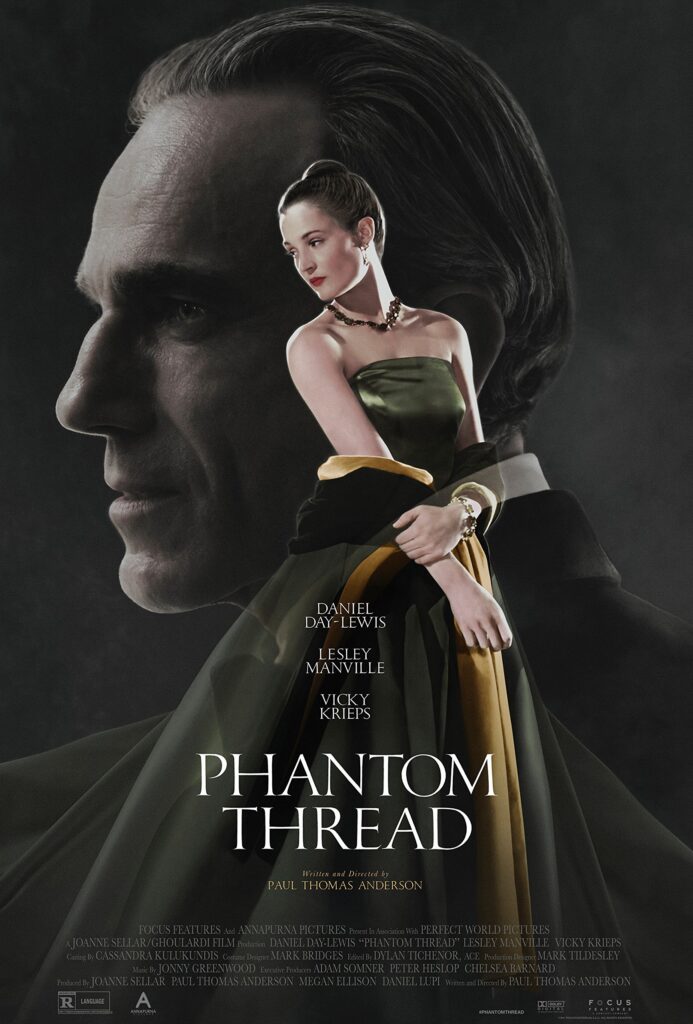
Next, we reach Phantom Thread. Just as Inherent Vice could be considered an odd follow-up to The Master, Phantom Thread could be just as strange as Inherent Vice. The film stars Daniel Day-Lewis, a renowned dressmaker from 1950s London who takes a young waitress as his muse. As always, potential spoilers ahead.
The origins of the film come from many different places. The main impetus of the film came to Paul Thomas Anderson as he lay sick in bed. His wife, Maya Rudolph, took care of him, and according to Anderson, looked at him in a way that she had not shown in a long time. Wanting to work with Daniel Day-Lewis again, he wrote the part of Reynolds Woodcock (the name is an inside joke between Day-Lewis and Anderson) specifically for the actor. Anderson became interested in fashion after reading about designer Cristóbal Balenciaga and incorporated the obsessiveness of designer Charles James into the character of Reynolds. Day-Lewis, a known character actor, studied for years with Marc Happel, the costumer for the New York City Ballet. He was so proficient that, before filming, he could recreate an iconic Balenciaga dress.
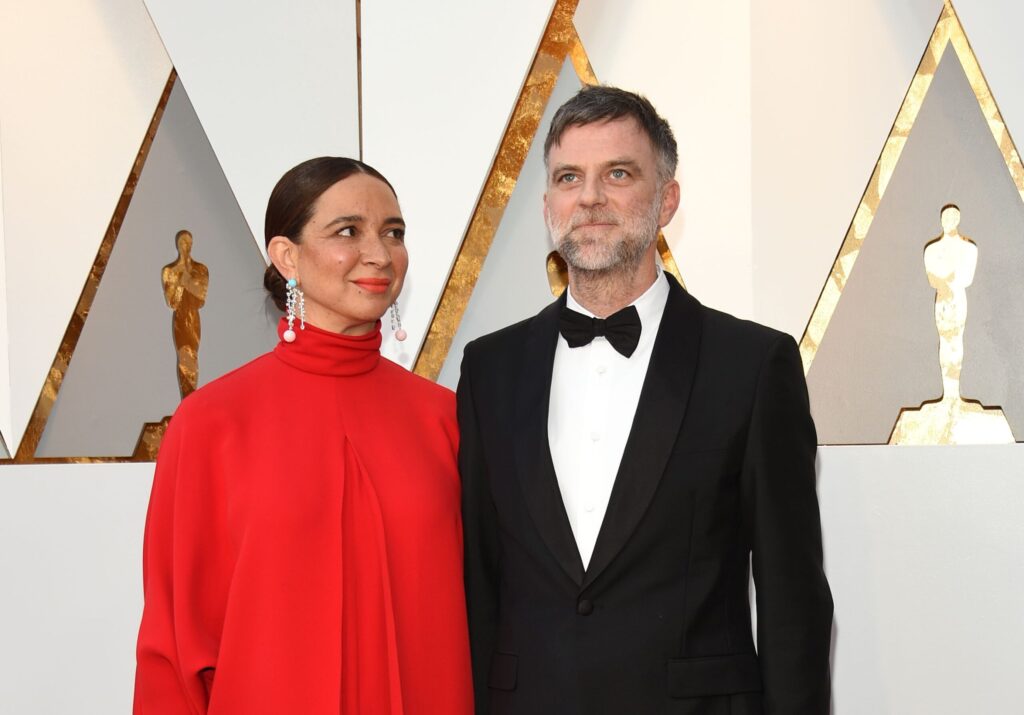
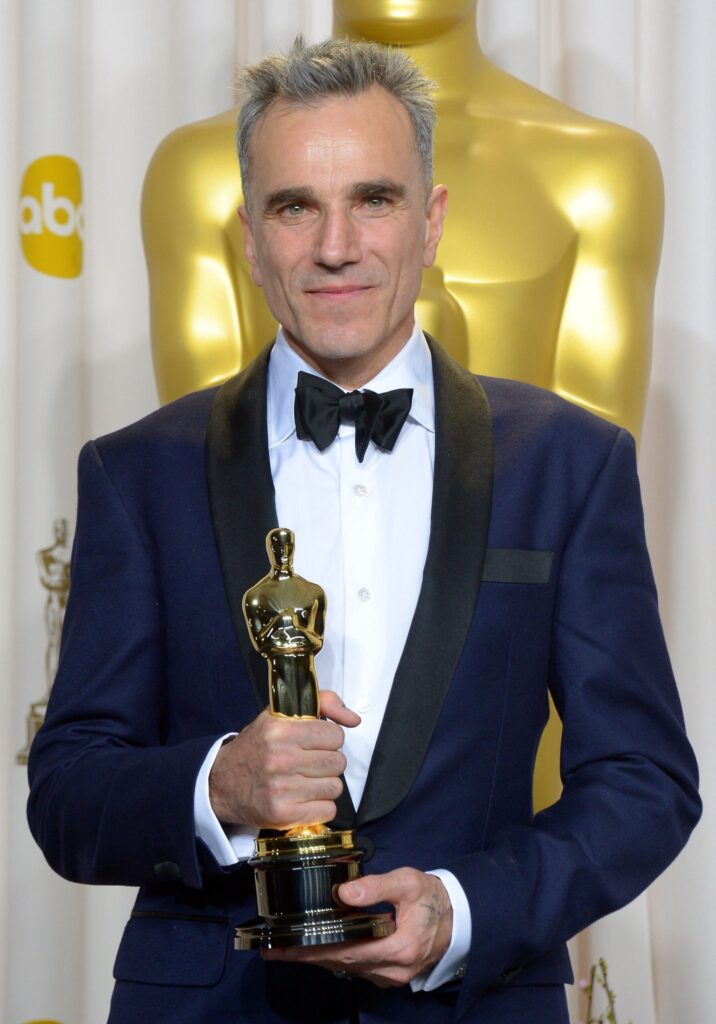
While Anderson reunited with many crew members, including long-time collaborators producers Joanne Sellar and Daniel Lupi and composer Jonny Greenwood, one notable absence was cinematographer Robert Elswit. Elswit served as director of photography for each of Anderson’s films except for The Master (Mihai Mălaimare Jr. took his place). Elswit and Anderson allegedly had a fallout on the set of Inherent Vice over Anderson’s shooting style and perfectionism. For this film, Anderson decided to forgo an official cinematographer and operate the camera himself. As such, there is no official Director of Photography credit, although Michael Bauman, who previously worked as Anderson and Elswit’s gaffer, was credited as the “lighting cameraman”. A proponent of film, they shot on 35mm and pushed their film, a process that exposed the film longer than required, to give the movie a “dirty” look. Anderson was determined to make sure the film didn’t resemble The Crown, a period piece with a beautiful and elegant look. In a 2020 interview, Elswit praised the film but criticized the cinematography.
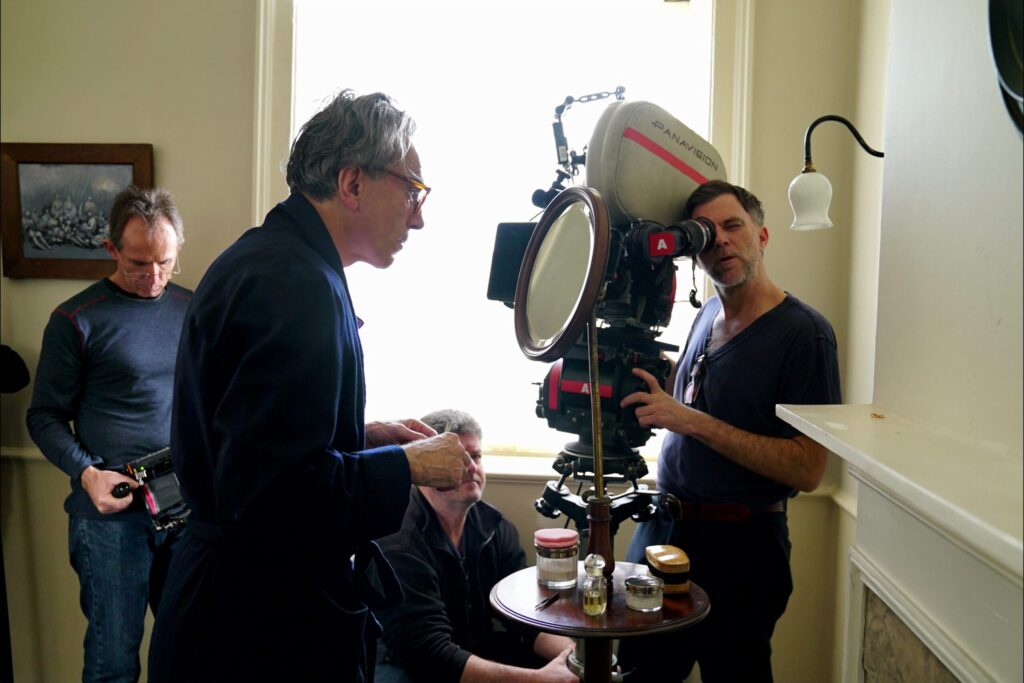
Daniel Day-Lewis gives, undoubtedly, the most standout performance in this film. Like Amy Adams in The Master, I’m not sure Day-Lewis has ever given a bad performance. As Reynolds, he can be kind and charming one moment, rude and condescending another, and explode with rage in another. The two other central actors in the film also give notably rich performances. As his muse, Alma, Vicky Krieps, brings a tenderness and vulnerability to the role. Sometimes, she can be naive and aloof but kind and loving. When she begins to poison Reynolds after he verbally abuses her at dinner, we can see a switch go off in her head. Even though she is poisoning him, she appears conflicted, almost like she has to convince herself that what she does is for their relationship’s greater good. This is confirmed by the somewhat masochistic ending, in which Reynolds knowingly eats a poisoned omelette so Alma can care for him. The other standout performance is Lesley Manville as Reynolds’ sister, Cyril. She is a blunt, yet caring woman. She has dedicated her life to managing the day-to-day operations of Reynolds’ fashion business. She shields him from anything she thinks will upset or distract him from his work. As a result, she initially distrusts Alma, but comes to be won over by her determination and willfulness. Being Reynolds’ sister, she is the only one who can call him out on his bullshit. This comes to a head when Reynolds discovers that one of his top clients has moved to a different fashion house and explodes at Cyril for not telling him. He blames Alma because she has thrown things off balance and turned the two against each other. She quickly sets him straight. Only she can talk to him the way she does.
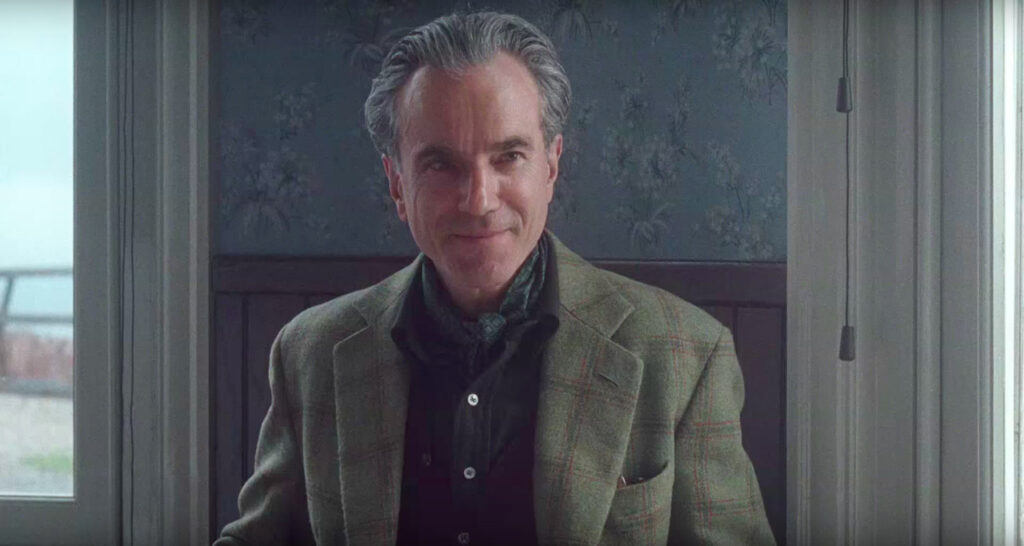
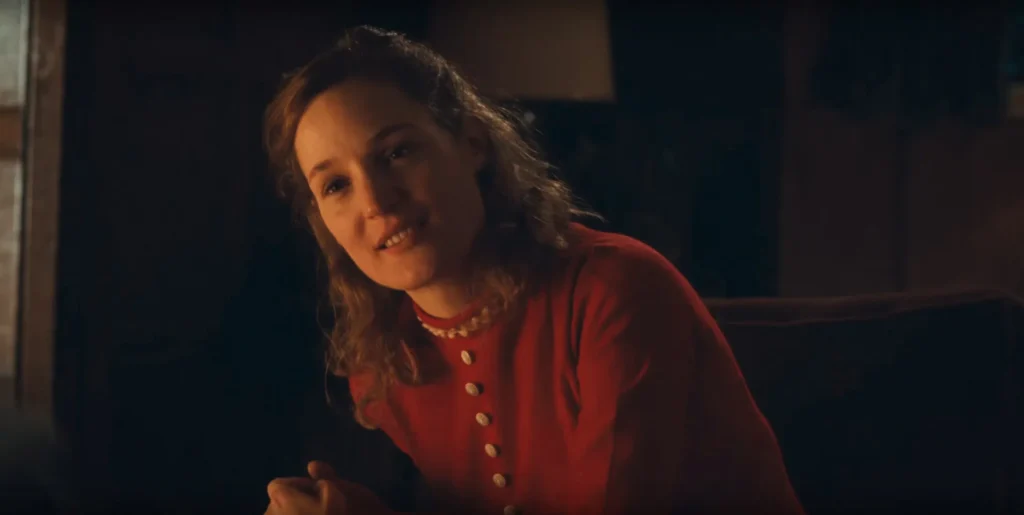
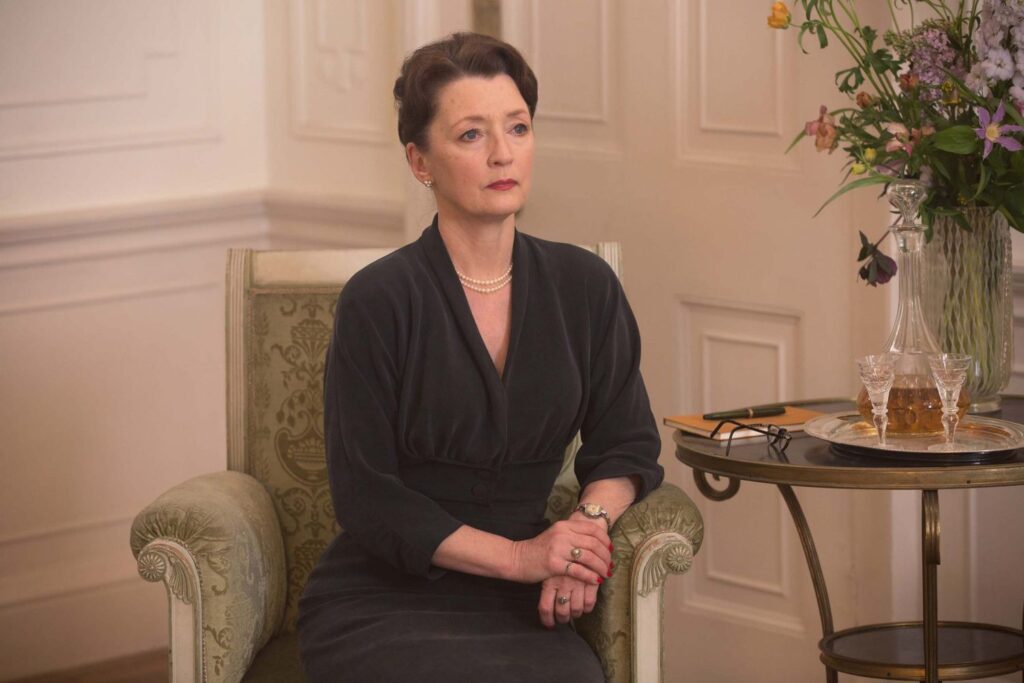
Now, I don’t know what changed in me over eight years since its release, other than just having patience and maturity. I’m sure there’s a lot more than that. I remember watching the movie, probably from a Redbox again, and couldn’t get through it. I was so bored. I had that worry going in for a re-watch that I wouldn’t be engaged. Luckily, I found this not to be the case. I wouldn’t say I was enthralled, but like The Master, the pacing is a little slow, but three standout central performances elevated the film. I wasn’t waiting with bated breath, but I was curious how the story would evolve, particularly with Reynolds and Alma. No disrespect to Day-Lewis or Manville, but Krieps as Alma was my favorite performance. She’s quiet, tender, and has a lot of heart, so it is heartbreaking when Reynolds mistreats her. So much so that you don’t feel all that bad when she poisons him, while the film didn’t have me glued to the edge of my seat, I did find myself more engaged than I thought I would. I don’t think I would be wrong to say that of all of Anderson’s films, this is probably his slowest burn. It takes time to build up to an explosive climax, but when it gets there, it is gold.

There are two last things I wanted to point out. The first is the overall quietness of the film. Aside from the few times Reynolds erupts in anger, the film is relatively quiet. Nobody yells. They all talk in a calming, inside demeanor. It gives me ASMR vibes. Add to that 90 minutes of Jonny Greenwood’s mesmerizing score, and the film appears, at times, to be a calming presence. The other thing that stuck with me was Reynolds’ love for his mother. Reynolds had a close bond, and it was during his second wedding that he made his first dress for her.
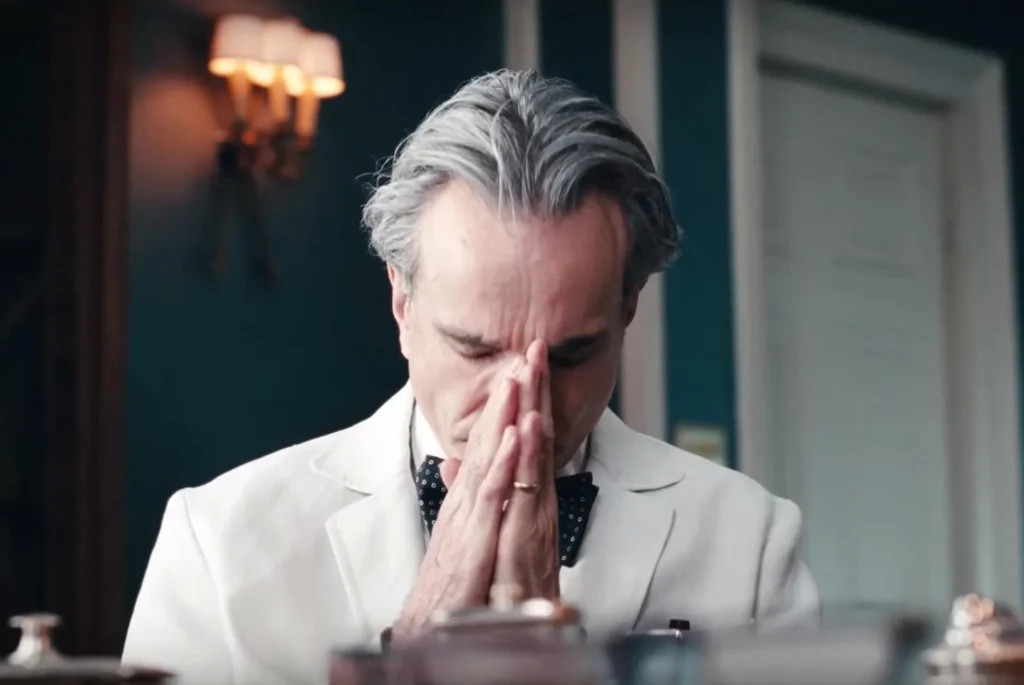
Being a bit superstitious, he hides messages within the dresses he makes, many in direct reference to his mother. So, the scene where an ill Reynolds is hallucinating and seeing his mother touches me for two reasons. The first is because it truly gives us a glimpse inside his mind and shows us how much he misses his mom. The second reason it sticks with me is that as I watched the scene, I was thinking about my father. Reynolds desired to talk to his mother and reflect on how much she meant to him. I felt the same way, thinking about my recently deceased father. Not to make this post more depressing, but most days, I would give anything to speak to him again and to hug him. I couldn’t help but channel my feelings towards my dad and apply them to Reynolds and his mother.
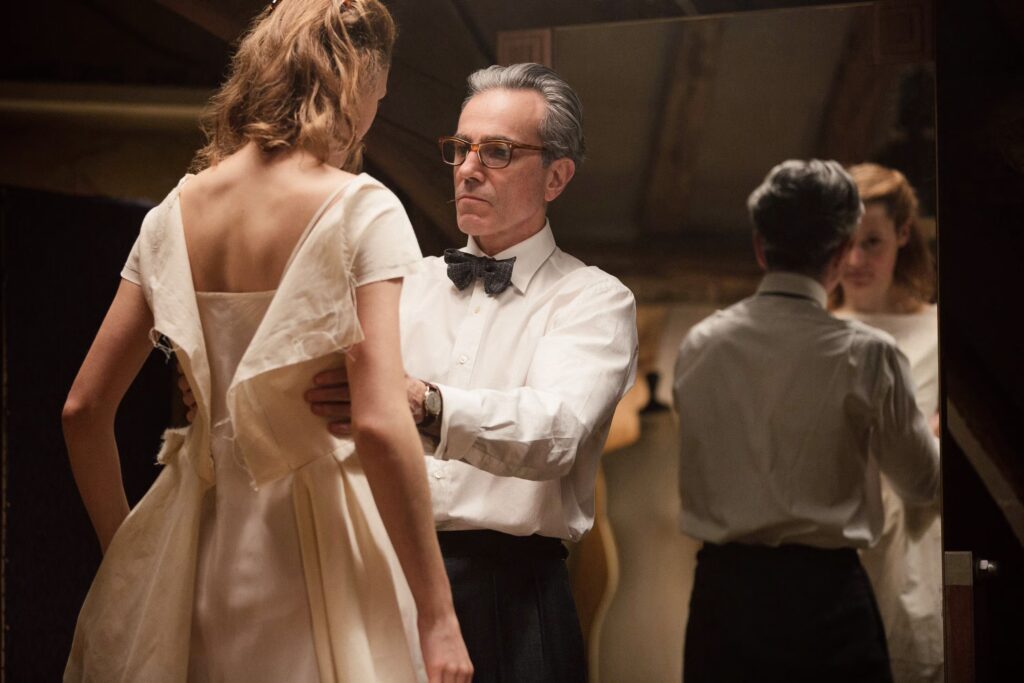
Released by Universal Pictures in December 2017, the film was a critical and relative commercial success, grossing $48.7 million on a $35 million budget. In early 2018, the film was nominated for six Academy Awards, including Best Picture, Best Director, Best Costume Design, and Best Original Score. Day-Lewis was nominated for his (as of now) most recent Academy Award for his portrayal of Reynolds Woodcock. However, I would have loved to see him win a fourth Academy Award for Best Actor and become the most winning living actor at the Academy Awards. Katherine Hepburn is the only actress to win four Academy Awards for Acting. Frances McDormand has four Academy Awards; however, three are for acting, and one is for producing the Best Picture winner, Nomadland. Even Meryl Streep, who has over twenty nominations, only has three trophies. However, this was the year Gary Oldman’s transformative performance as Winston Churchill was recognized for Darkest Hour (which, I shamefully have not seen). While I would have preferred a nomination for Krieps, Lesley Manville ended up with a nomination for Supporting Actress. However, this was the year that Allison Janney swept for I, Tonya. To me, the most baffling nomination was Anderson for directing. What baffles me is that Anderson earned Picture and Director nominations, but failed to get in for his screenplay. When I think of Anderson and the Academy Awards, I think about his screenwriting being nominated more than producing or directing. Perhaps the idea that he shot the film without an official director of photography helped his cause? I don’t know, but it wouldn’t surprise me if he factored in.
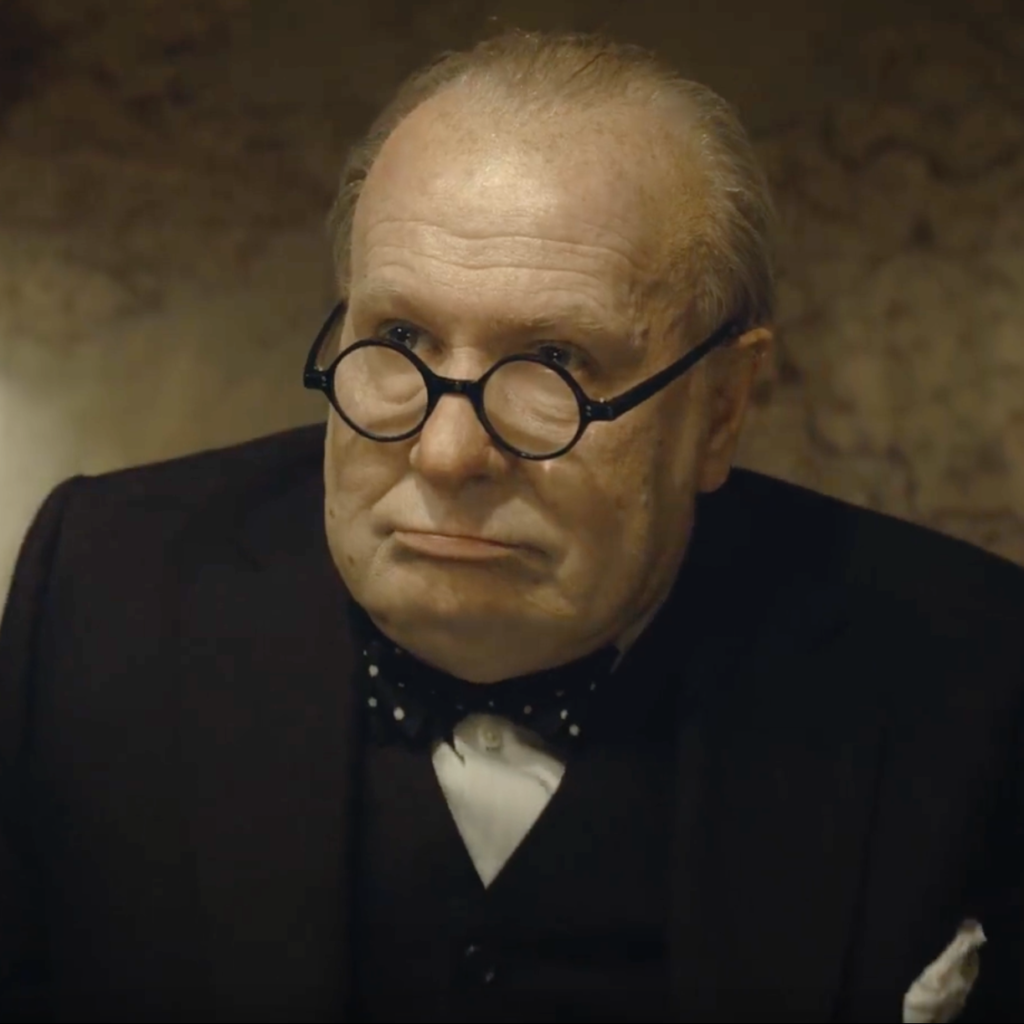
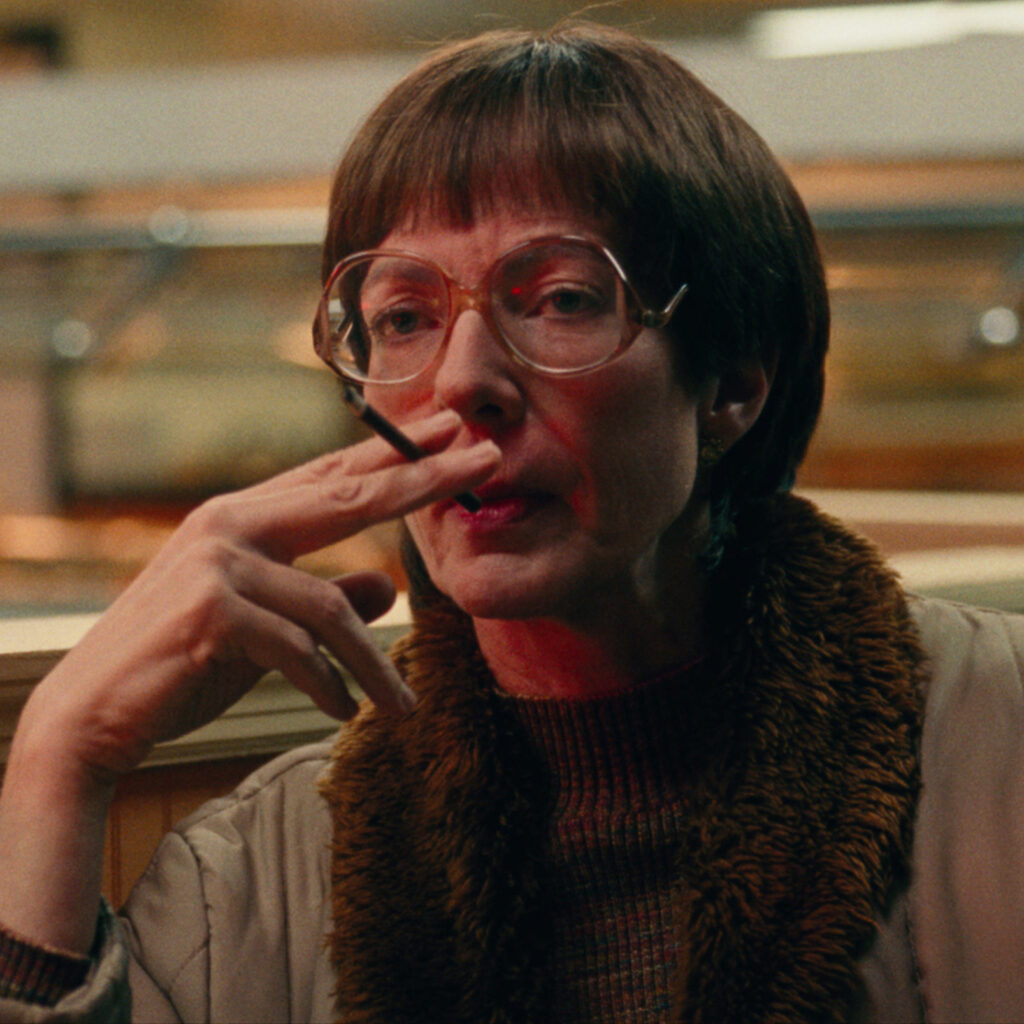
Next, we get to a film that I genuinely want to like, but have struggled with, Licorice Pizza. Perhaps, like my goal with all the other films, I will like it more upon a re-watch. Soon we will find out. In the meantime, thank you for reading.